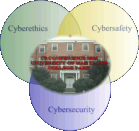

























































|
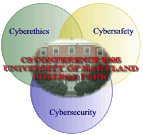 4th Annual C3 Conference 4th Annual C3 Conference
Cyberethics, Cybersafety, & Cybersecurity
Implications for the Educational Community
Part of the National Cyber Security
Awareness Month Initiative
October 6, 2005 - Pre-Conference Workshops
October 7-8, 2005
- Conference Sessions
Samuel Riggs Alumni Center
University of Maryland, College
Park, MD
|
| The digital age has created new concerns regarding the use
of non-traditional electronic and Internet resources in the
educational setting. The speed with which students acquire
information technology skills may be chronically outpacing
educators' abilities to ensure that positive habits of on-line
behavior are being formed. Therefore, Cyberethics, Cybersafety,
and Cybersecurity issues need to be integrated in the
educational process beginning at an early age. Unfortunately,
while the teaching of technology processes and skills has
been handed to the classroom teacher, most educators lack
the knowledge and up-to date information related to Cyberawareness
issues, particularly with respect to security. Teacher technology
training has been geared toward skills development and integration
techniques. Teachers, in many instances, model incorrect protocols
and behaviors to their students. Not only does this increase
the risks to the security of the teacher’s own classroom
and local school system’s information systems, but it
also increases the chances that students will mimic these
behaviors |
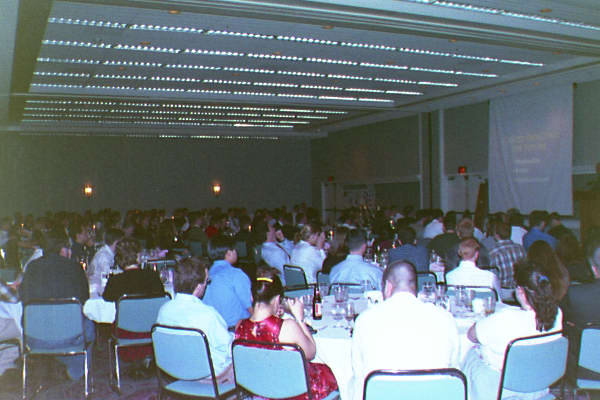 The core mission of the C3 Conference is to inform the educational
community about the ethical, legal, safety, and security implications
of technology use. This year will include a special emphasis
on Cybersecurity. Participants will hear from a number of
National Educational Technology and Information and Assurance
Technology Experts on topics including Netiquette, Acceptable
Use of Computing Resources, Viruses, Hoaxes and Trojan Horses,
Backing up, Anti-Virus protection and Firewalls, Intellectual
Property, Privacy, Security and Safety, Educational Curriculum
Options, and Security. Through a variety of case studies and
group work, participants will give consideration to responses
that can be applied in their own settings. Participants will
also learn how to get more actively involved in National
Cyber Security Awareness Month. NSF funding has
allowed us to expound upon the role of the IT professional
in cybersecurity through the scheduled pre-conference workshops The core mission of the C3 Conference is to inform the educational
community about the ethical, legal, safety, and security implications
of technology use. This year will include a special emphasis
on Cybersecurity. Participants will hear from a number of
National Educational Technology and Information and Assurance
Technology Experts on topics including Netiquette, Acceptable
Use of Computing Resources, Viruses, Hoaxes and Trojan Horses,
Backing up, Anti-Virus protection and Firewalls, Intellectual
Property, Privacy, Security and Safety, Educational Curriculum
Options, and Security. Through a variety of case studies and
group work, participants will give consideration to responses
that can be applied in their own settings. Participants will
also learn how to get more actively involved in National
Cyber Security Awareness Month. NSF funding has
allowed us to expound upon the role of the IT professional
in cybersecurity through the scheduled pre-conference workshops |
| Diverse participants in previous C3 Conferences have all
affirmed the value of the sessions, content and the plethora
of materials and resources they are given. This year's conference
will continue explore updates and changes in cyberethics (i.e.,
copyright, plagiarism) and cybersafety curriculum, but will
look deeper into the cybersecurity landscape. Special security
topic breakout sessions will be included, as well as a full
day of security workshops geared to IT and IA personnel. |
- Property Rights and Copyright issues
- Plagiarism and Electronic Cheating
- Safety and Security: Internet Citizenship-Rights and Responsibilities
- Effective Security Practices
- Cybersecurity for the Digital District
- CyberSmart, iSAFE, NetSmartz Curriculum Resources
- Accessing Education: IT for Students with Disabilities
- Viruses, Hoaxes, Trojan Horses: Backing Up, Anti-virus protection,
and Firewalls
- Mail, Messaging, Spam Control
- Curriculum and Tools for Security Training and Awareness
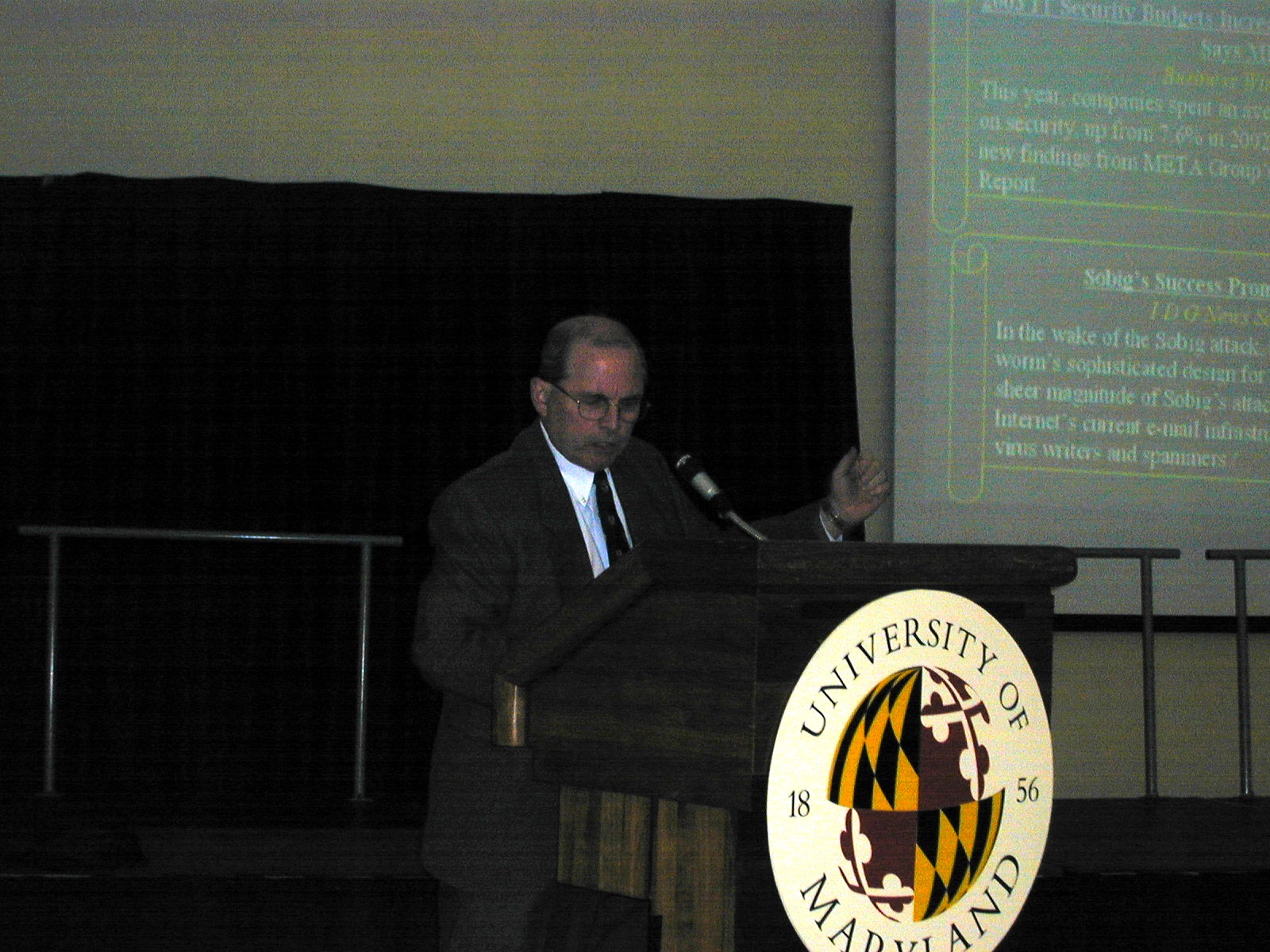 Comments
from Previous Attendees Comments
from Previous Attendees
"I have come away with a new strong resolve
to make this an important on-going topic in my school,
with administration, faculty and students. Definitely,
the whole community needs to be informed of these issues
and more aware of how technology is really changing our
ways and responsibilities."
"Wonderful experience - worth the time. Thank you for sharing."
"Great speakers, Great forum for sharing with others. Concrete
examples, great resources!" |
Contact : Davina Pruitt-Mentle - (301) 405-8202 - dpruitt@umd.edu
Presented by
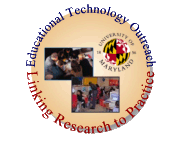  


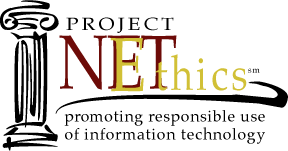 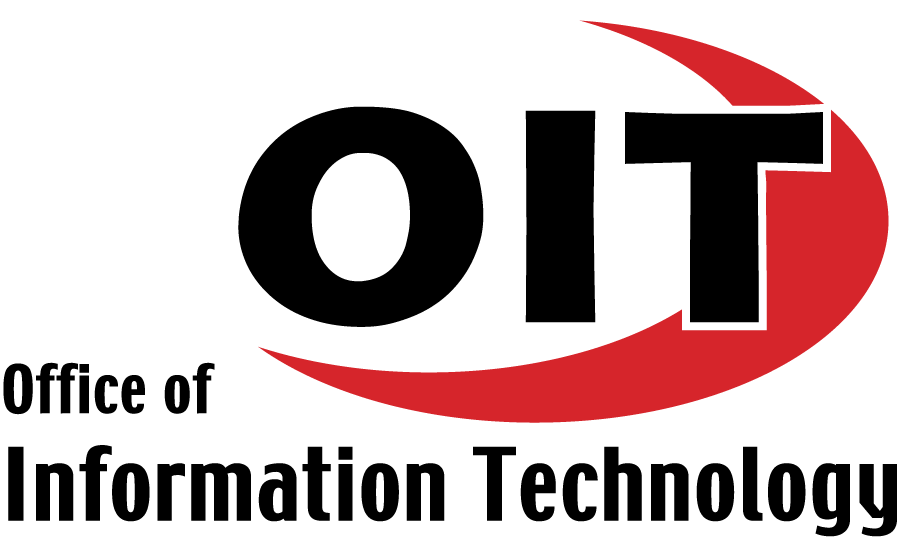 |
|
|
